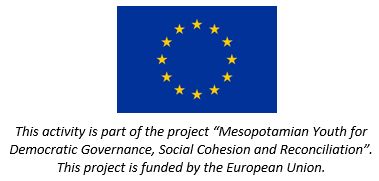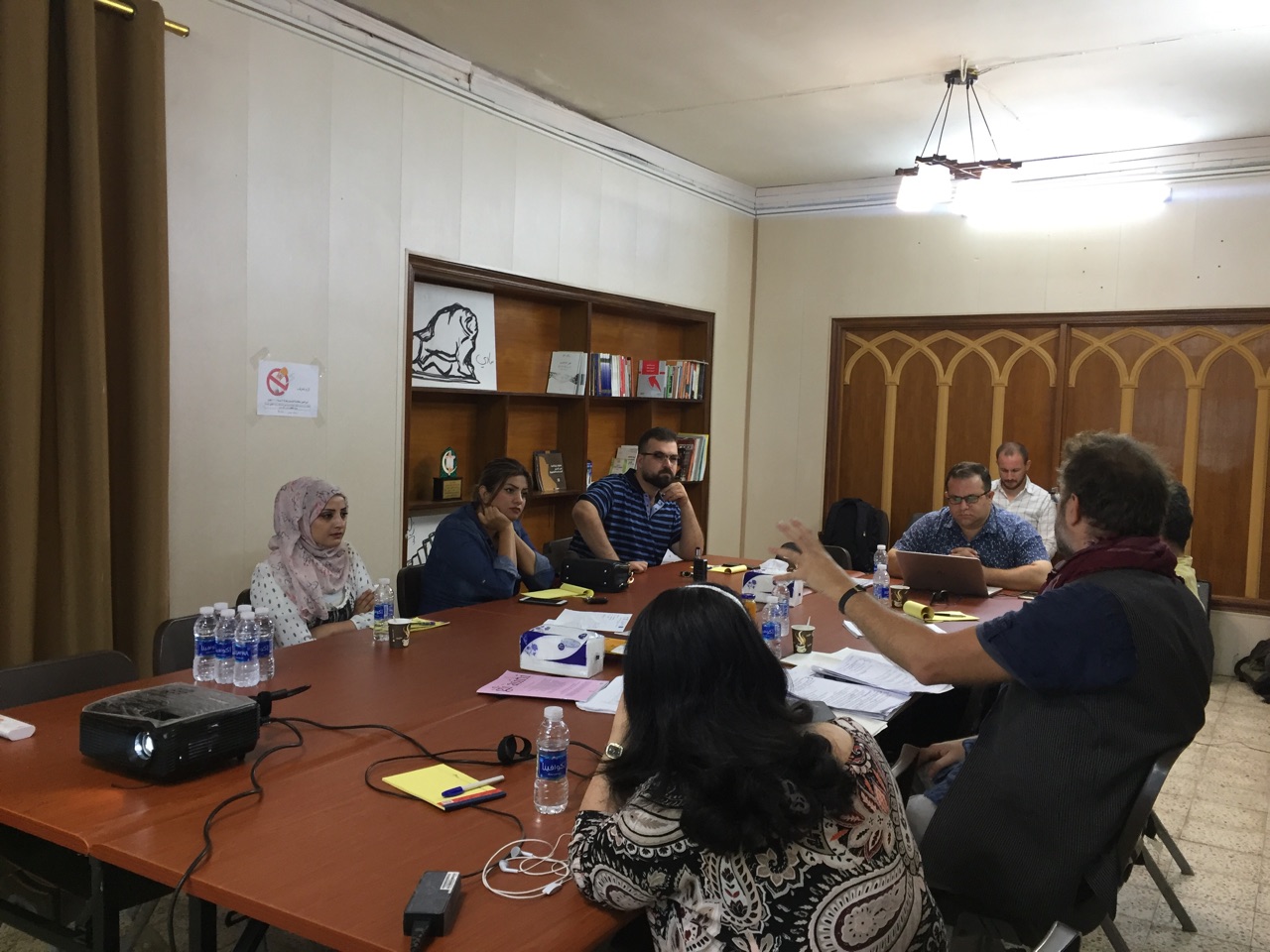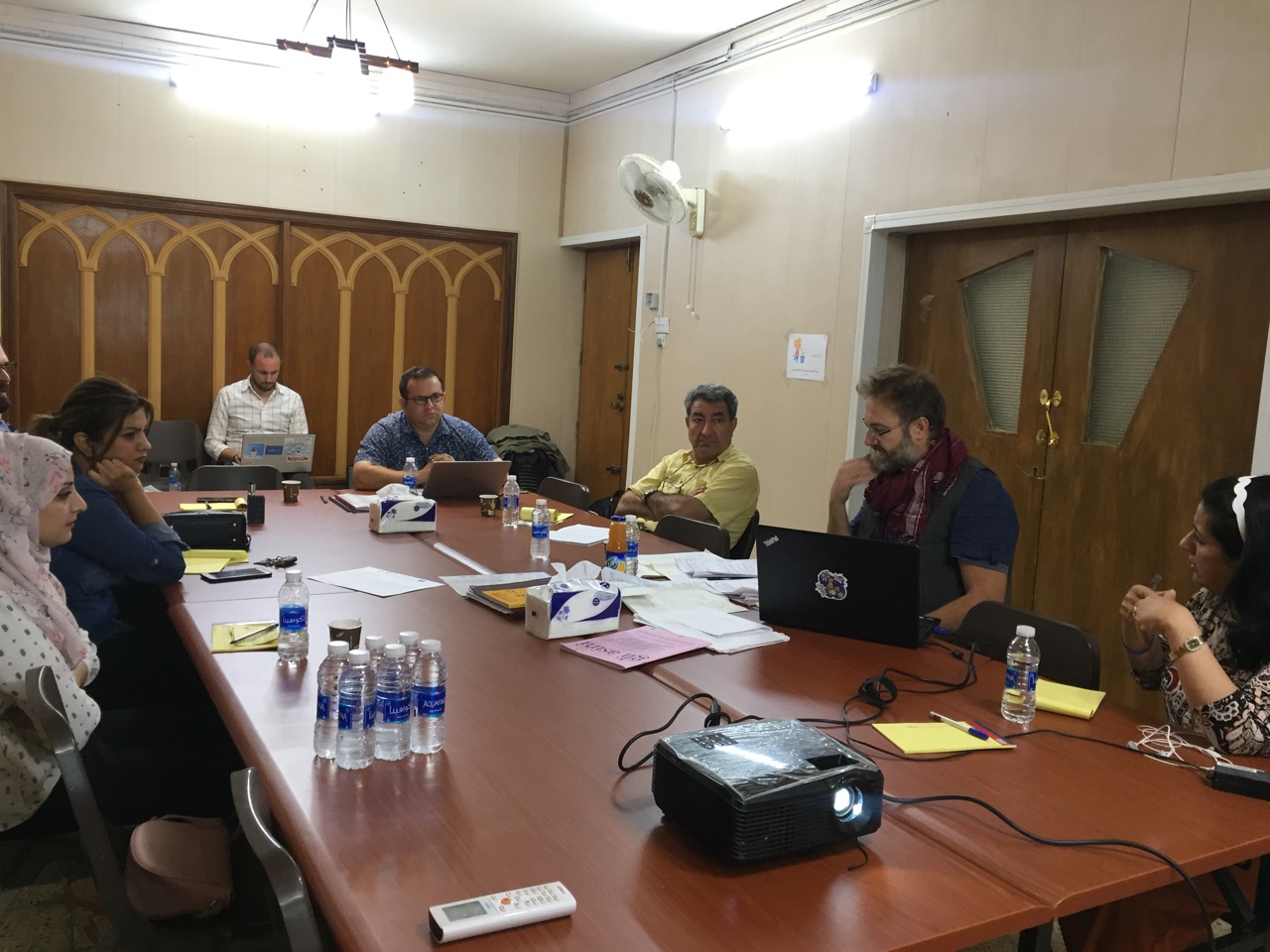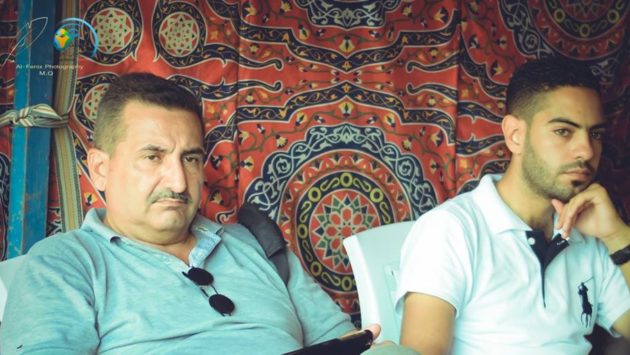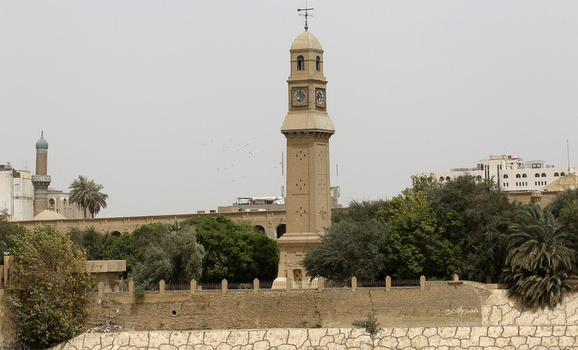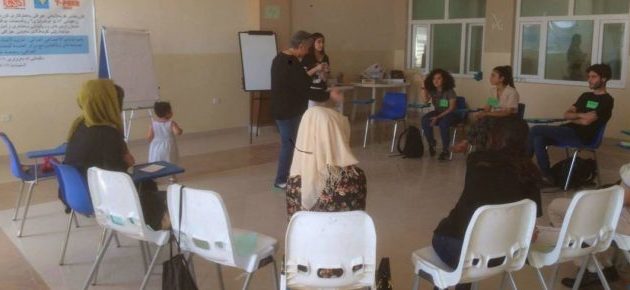An Alternative Vision For the Iraqi National Budget
The role of civil society is not limited merely to highlighting societal problems: it must propose valid alternatives to the status quo in order to assist public authorities to bring about real change. Given this, activists from the Iraqi Social Forum will carry out and publish research based on proposals from Iraqi CSOs about innovative ways to spend the annual budget of the Iraqi State and the Kurdish Region. This alternative vision will assign high priority to social services, humanitarian support to IDPs, the creation of new jobs, the protection of the environment, funding a national reconciliation process, and the NAP for UN Res. 1325.
To kick-off the research, the Information Center for Research and Development organized a training on alternative budgets within the Iraqi Social Forum for 2 trade union activists and 3 civilian activists and academics. The training, held in Baghdad from 8 – 9 October 2018, was conducted by Giuliano Battiston, an expert on the political economy and activist from Sbilanciamoci, a civil society coalition from Italy. The creation of an alternative budget must increase the involvement of civil society, trade unions and professional unions in the financial management of the country and advocate for increased transparency in government spending.
Giuliano Battiston opened the course with a session on globalization and its impact on national policies. The first objective of the training was to generate a list of priorities about how the Iraqi government might find new resources for new expenses. The second goal was to agree on the formation of a working group which will research the alternative budget, carefully monitoring government spending, so that the focus is on the livelihood of the Iraqi people rather than the gross domestic product (GDP). Many governments realize that the GDP is an ineffective measure of economic growth because it reflects only one aspect of the economy without clarifying who is producing, how the production is being carried out, and who is benefiting from it. In 1990, the United Nations developed a more nuanced index to measure the development of different sectors of the economy in a number of countries, including health and education. It also included a gender scale used to measure the empowerment of women in economic participation. This new index can provide much clearer information about the well-being of societies than what we gain from the GDP alone. To conclude the first day, participants discussed what their priorities would be given an aim to improve the lives of ordinary Iraqis. The most prominent issues were health, education, security, justice and equality, law enforcement and personal freedoms.
The second day started with an overview of the first alternative budget produced by Sbilanciamoci in Italy in 1989-1990. This budget proposed a reduction in military spending by 20% and its redirection to social benefits. The session leader pointed out that the Italian government had previously responded to alternative budget proposals, agreeing to transfer 20 billion from military spending to other expenses. Achieving a similar level of influence in Iraq depends on the ability of activists to create strong alliances and advocate for new budget plans. During the second part of the day, participants started working on some concrete proposals and a research team was formed, ready to start working on an alternative budget for the government of Iraq.
This training was implemented by Information Center for Research and Development, funded by the European Union, in cooperation with the Italian organization, Un Ponte Per…, and the Iraqi Civil Society Solidarity Initiative. It takes place within the framework of “Mesopotamian Youth for Democracy, Social Cohesion and Reconciliation” to to support the masar (paths) and activities of the Iraqi Social Forum.


